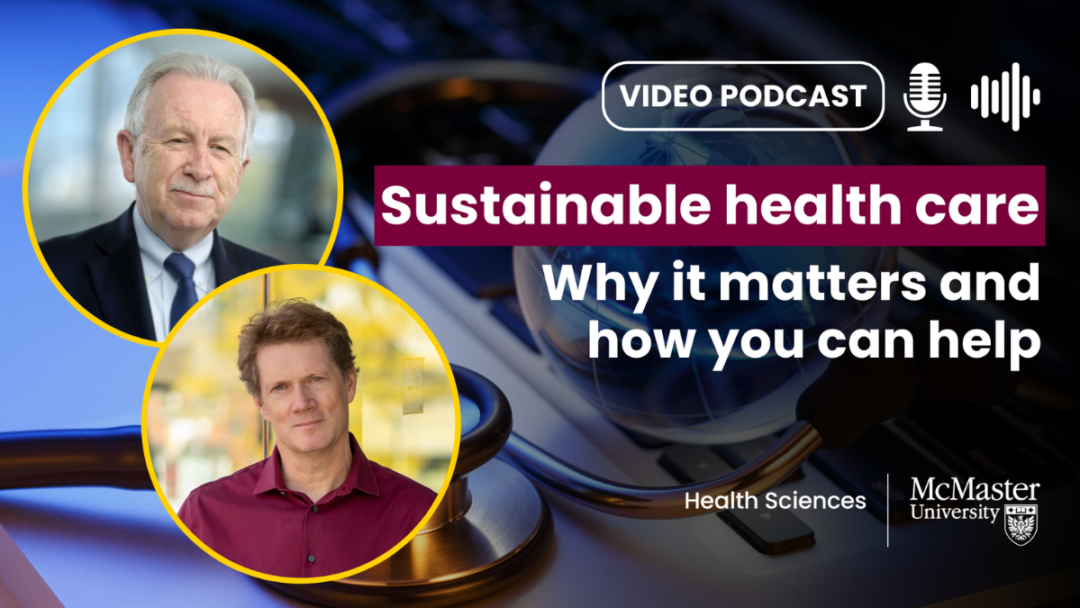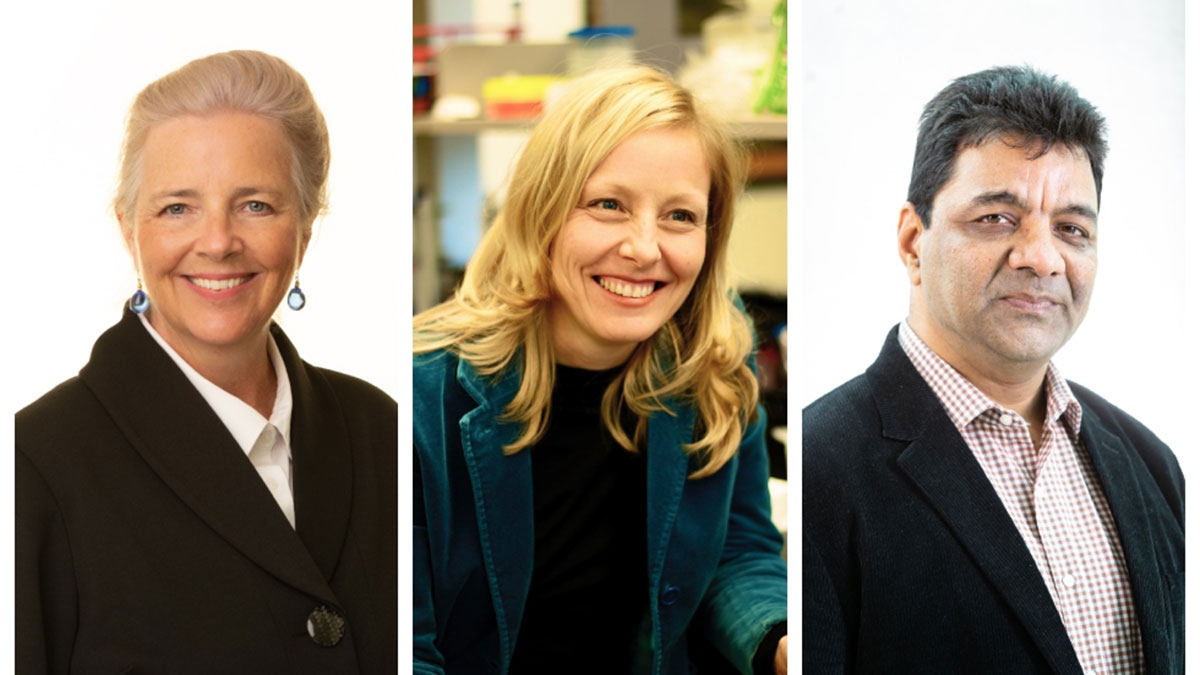Sustainable health care: Why it matters and how you can help

McMaster University is a proud member of the Sustainable Development Solutions Network Canada, and the Faculty of Health Sciences is committed to fostering a collaborative environment where staff, students and faculty can work together and find innovative ways to create a healthier, brighter world.
Paul O’Byrne, dean and vice-president of the Faculty of Health Sciences, spoke with Myles Sergeant, assistant clinical professor in the Department of Family Medicine and co-lead of PEACH Health Ontario, about the impact of climate change on the health of Canadians and creating a more sustainable and resilient health care system.
Sergeant, executive director of the Canadian Coalition for Green Health Care, will be among the global experts at the 29th Conference of the Parties (COP29) next week and will be presenting on sustainable health care at the Canada Pavilion at COP 29, as well as announcing upcoming projects with partner organizations.
Ahead of ahead of COP29, which is taking place Nov. 11-22 in Baku, Azerbaijan, Sergeant spoke with the university about what he hopes to accomplish at the global summit and the work we can do with global partners to tackle the threat of climate change:
What is your key focus in attending COP this year?
Sergeant: In addition to some exciting announcements and my presentation on sustainable health care, I will be engaging with other health care leaders and physicians doing similar work. This is a great opportunity to learn from them and share what PEACH has been working on in Canada and specifically here in Hamilton, such as influencing hospital strategic plans to incorporate sustainability, developing a business case for sustainable menu options in hospitals, engaging with family physicians to lead sustainability initiatives and researching how to reduce the environmental footprint of end-of-life care while improving patient care.
There are countries around the world who are working on this very, very big problem — and within the health care sector we think both about mitigating or decreasing the amount of damage that we do in our day-to-day business, and also about how we can be helping people with the human health effects of climate change.
We have a lot of similarities to the other countries in what we call the Global North — in that they have health infrastructure and systems like we have in Hamilton. In addition to learning from those with similar systems, we can learn from those from the Global South, who have extensive experience with resiliency, such as how to make health care systems that are resilient to storms and heat, etc.
In what way is McMaster uniquely positioned to work with global partners to tackle climate change?
Sergeant: McMaster University has a long history of collaborating both locally, nationally and globally. The university’s extensive network, partnerships and commitment to sustainability make it well-positioned to be a leader in this space.
With support from McMaster, we started PEACH Health Ontario three years ago and it was made up of, at the time, four volunteers and now three years later we have a full-time research coordinator and other supports from around the McMaster campus.
We make targeted health care toolkits and guides and focus on knowledge translation to make climate change initiatives accessible to various audiences, such as clinicians, office managers and health care leaders.
One important area of focus is the supply chain — the things that we buy and how we’re procuring them, the medications and devices that we’re using, for example, whether we are using reusable devices.
There are so many areas where positive changes can be made, and collectively this can have a significant impact.
Dept. FamMed, Faculty & StaffRelated News
News Listing

2 days ago


